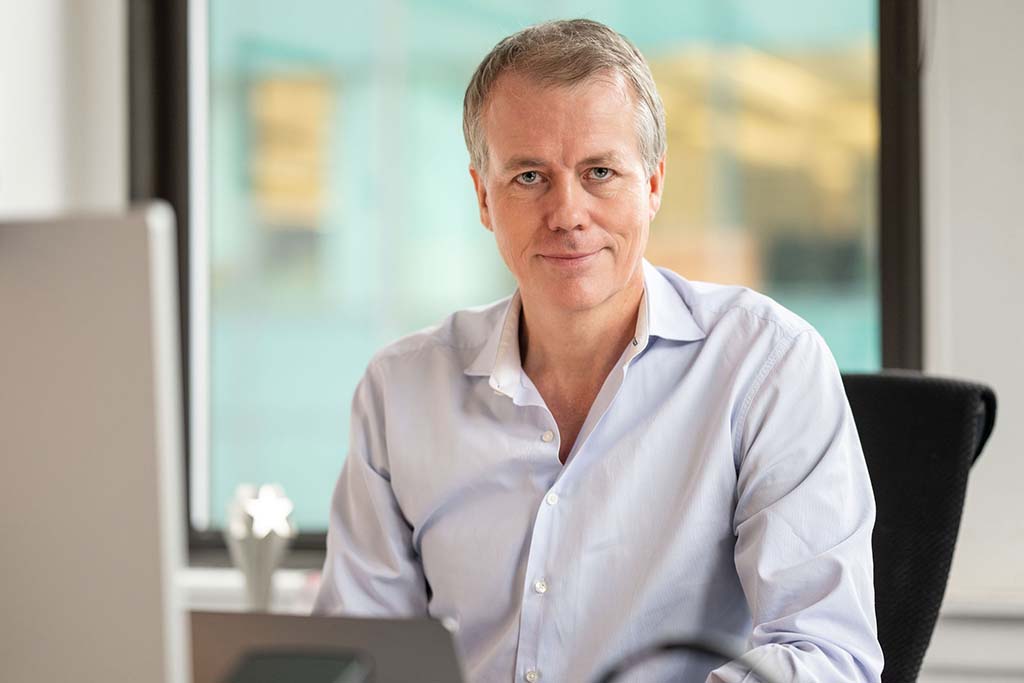
In 2023, Sharp Entertainment, a part of Sony Pictures Television, marked its 20th anniversary by producing episodes for an eye-popping 22 new and returning nonfiction shows for multiple television networks including TLC, MTV and Bravo — a noteworthy achievement in an otherwise turbulent and unpredictable business environment.
New York-based Sharp Entertainment, under the leadership of founder and CEO Matt Sharp, has found the right formula for memorable, genre-shaping reality content for more than two decades, with credits including TLC’s 90 Day Fiancé, Cooking Channel’s Man v. Food and WE tv’s Love After Lockup. Sharp’s ability to capture unique, true-life characters and stories originating from Middle America to remote destinations around the world for viewers puts him on solid footing within a shifting landscape.
Also Read: ’90 Day Fiancé’: A Match Made in Reality Heaven
“Matt Sharp has this extraordinary knack for finding great ideas that lend themselves to long-running series,” Sony Pictures Television president, nonfiction Eli Holzman said. “His golden gut never steers him wrong, and it’s really, really impressive. He’s a real producer that loves the thrill of the hunt in making the shows that pull on the viewer’s heartstrings, as well as making them laugh and think.”
The Syracuse, New York, native, who started a home window-washing business while in high school and later sold T-shirts while attending the University of Vermont, turned his entrepreneurial skills to television in 2003 after a short stint as a producer at VH1. Sharp Entertainment launched that year with a show he initially produced for VH1, The Fabulous Life. The big hit, which focused on the lifestyles of such celebrities as Jennifer Lopez, Michael Jackson, Arnold Schwarzenegger and Hugh Hefner, put Sharp on the map.
I believe that people want to see diversity in their programming and they want to learn about other people. I really think ‘90 Day Fiancé’ is the most culturally and ethnically diverse show on television.”
— Matt Sharp, Sharp Entertainment
Even after Sharp sold his company in 2012 to Core Media — which eventually rebranded to Industrial Media before its 2022 purchase by Sony Pictures Television — he kept up his hands-on approach and the company’s prolific development of successful original content across multiple reality genres. Sharp-produced shows like Man v. Food, National Geographic’s Doomsday Preppers and TLC’s Extreme Couponing offered viewers rare and fascinating looks inside unusual, charming, authentic and, in some cases, alarming stories about the lives of real people.
“The first thing about Matt that I really appreciate is, he’s not just a seller of TV shows,” Howard Lee, president of Discovery Networks and TLC, said. “He gets his hands really dirty and gets involved creatively with his team. He makes sure that the storytelling is accurate, defined and incredibly authentic.”
In 2013 Lee and Sharp teamed to develop TLC’s juggernaut franchise 90 Day Fiancé. Sharp’s simple but brilliant concept — following U.S. citizens looking for love overseas within the boundaries of a then-relatively unknown K-1 visa process that gave them three months to marry their foreign loves — has piqued viewer interest since its debut. Ten years and more than 30 spinoffs later, the 90 Day Fiancé franchise has garnered more than 68 billion viewing hours across 150 countries, according to Sharp Entertainment.
Not resting on laurels, Sharp Entertainment remained busy in 2023, producing episodes for more than a company-record 22 nonfiction series and specials, including season 10 of the original 90-Day Fiancé. High on this year’s agenda are returning franchises on networks and new upcoming series for The CW, WE tv, A&E and TLC.
Sharp’s reputation as a master series producer and hit-maker also has networks like WE tv bringing series concepts to his front door. WE tv in 2018 turned to Sharp to produce signature series Love After Lockup, following the romantic lives of recently released felons. It become one of WE tv’s highest-rated programs and has generated several spinoffs, including Love During Lockup and Life After Lockup.
“Love After Lockup was an idea born in the halls of WE tv, but we knew instantly Matt Sharp and Sharp Entertainment were the perfect team to develop it out and make it a reality,” Angela Molloy, ALLBLK and WE tv senior VP of development & original production, unscripted, said. “Their ability to bring these truly real, original human stories to life with such authenticity has been one of the many reasons Love During, Love After and Life After Lockup continue to captivate viewers.”
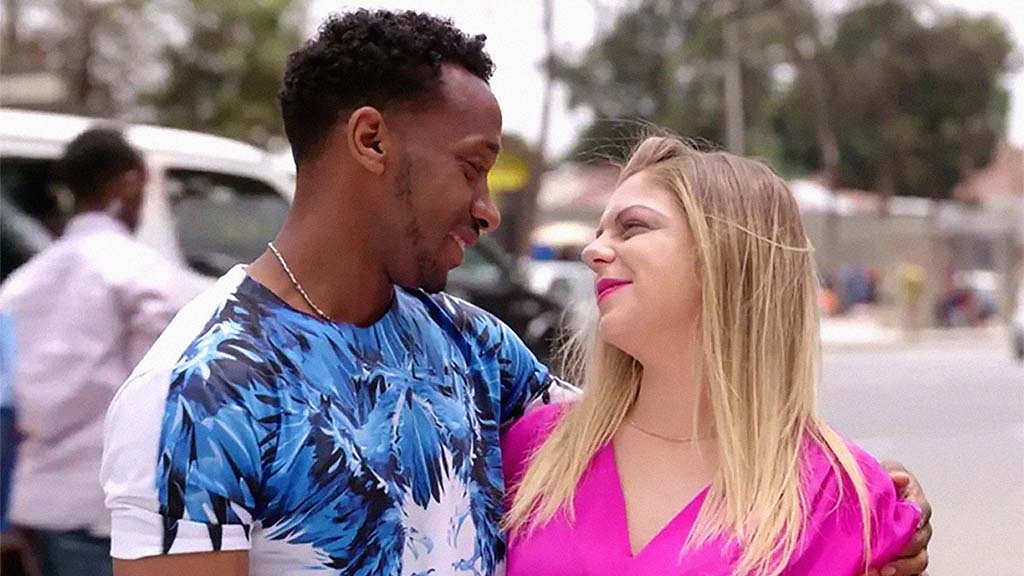
As for the future, Sony’s Holzman said Sharp’s production talents and instincts will sustain and carry his company through the TV industry’s volatile evolution. “Of all the things that we worry about, Sharp Entertainment is not one of them,” Holzman said. “Matt’s shows, apart from the consistent quality, creative output of the organization, are really made responsibly. Matt’s well-positioned for the change in our business.”
Sharp’s ability to remain relevant with nonfiction content that appeals to a wide segment of viewers in a crowded and uncertain television environment has earned him B+C Multichannel News Producer of the Year honors for 2024.
In an interview, Sharp described his reality TV journey and the inspiration behind some of his company’s biggest hits while looking toward the future for video content creators. Here’s a version of that conversation, edited for space and clarity.
B+C: How did a young entrepreneur from upstate New York end up becoming one of the most successful and prolific television content producers of the past 20 years?
Matt Sharp: So my first job, I was an intern at MTV before becoming a page at CBS, where I wore a uniform and showed people to the bathrooms at the Ed Sullivan Theater during The Late Show [With David Letterman]. Then I worked at CBS News for a while and realized that my heart was really in entertainment. I went over and I started working at VH1 as a writer, and I worked there for about three or four years. What was cool about that time was that the industry was really the Wild West, where people were just trying stuff and no one understood what nonfiction was. I mean, there was The Real World and maybe two or three other shows. VH1 was a very cool place to be at the time because they were very innovative in trying all these different things super cheap. My boss at VH1 said to me, ‘We’re really interested in doing a show about celebrity wealth,’ so he tasked me with developing that.
Ultimately we did a show, The Fabulous Life of Jennifer Lopez, which was a special. The network just threw it on the air and it was instantly one of the highest-rated shows of the year. So we got an incredible offer order from that, but really what I wanted to do was start a company.
Even though I had some job offers to move to L.A. and to work there, I approached my boss and mentor at VH1 at the time, Michael Hirschorn, about starting a company. Michael was totally supportive of that, and The Fabulous Life was so great, he supported me taking that show with me and starting a company with that order. So that’s how we started. At the time, people were like, what are you doing, particularly in New York and in nonfiction? We were one of the early ones.
B+C: What characteristics do you look for in developing a series?
MS: If you look at the history of Sharp Entertainment, we’ve done lots of different types of shows. Where some production companies focus in one area, we started really as a pop culture clip-show shop, and that’s what people came to us for. Then we created Man v. Food and moved into food programming, and then into subcultures with Extreme Couponing and Doomsday Preppers. Now with 90 Day Fiancé and Love After Lockup, we’re the love guys.
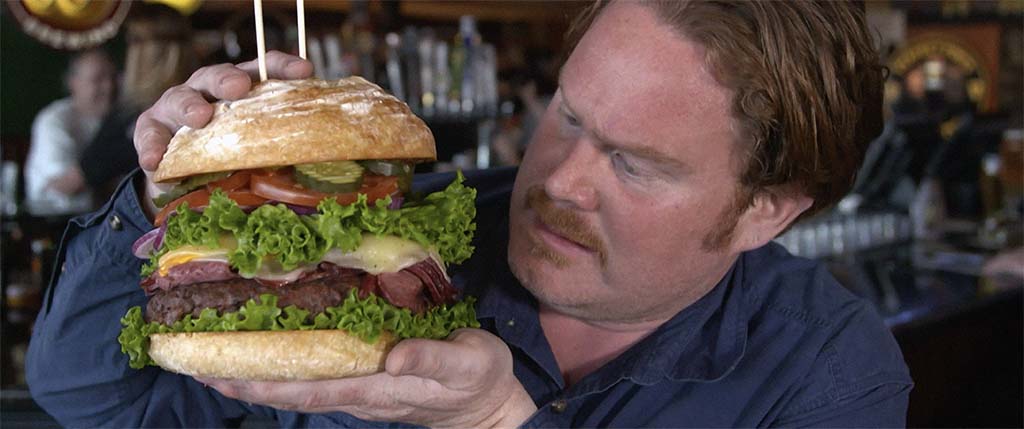
My theory has always been that it’s really fun to make a show but it’s really fun to make a hit, and that’s what we’re interested in doing. If you can create something that’s cool and different that you’re proud of — and the country and maybe even the world is also really appreciating and loving it — I think that’s the cherry on top for the business. We have lots of ideas, but not every idea is a great show. So, someone will pitch us an idea, and while that’s maybe a really interesting thought, we’ll ask ourselves, ‘What leads you through a segment? Why are you watching that?’
A great example is when we constructed Man v. Food. We had a great, charismatic host in Adam Richman and the concept was, he’s going to travel to some of the best mom-and-pop restaurants in the country and we thought people would want to see that. But then we asked ourselves, ‘How are we going to make this a hit?’ Well, the hit is he’s going to do a food challenge once an episode. If that food challenge piece worked and people cared if Adam wins or loses, we felt like we had a hit. And then that show turned out to be, at the time, Travel Channel’s top-rated show.
B+C: By 2012, Sharp Entertainment had several hits under its belt, but then you ended up selling the company. Why did you feel that was the best time to sell and what were your expectations for the company under new management?
MS: You never know where the industry is headed. We were doing very well at the time and were approached with an offer that we felt was really compelling, which was to keep control of Sharp Entertainment in New York and to be a partner in this business, but to also bring in partners that allow us to really grow the business. The expectation is that every time you do a deal, the great work that you’re doing continues on, which is what happened.
Since that first deal, we’ve done another deal and continued to grow the business. I’m happy to say that 2023 was the most successful year we’ve had, and they’re not all successful. There were moments along the way where we had a show canceled and we looked up and realized that we don’t have any other shows. There were those moments, but over the course of 20 years, we’ve continued to grow and I think we will continue on that trajectory this year.
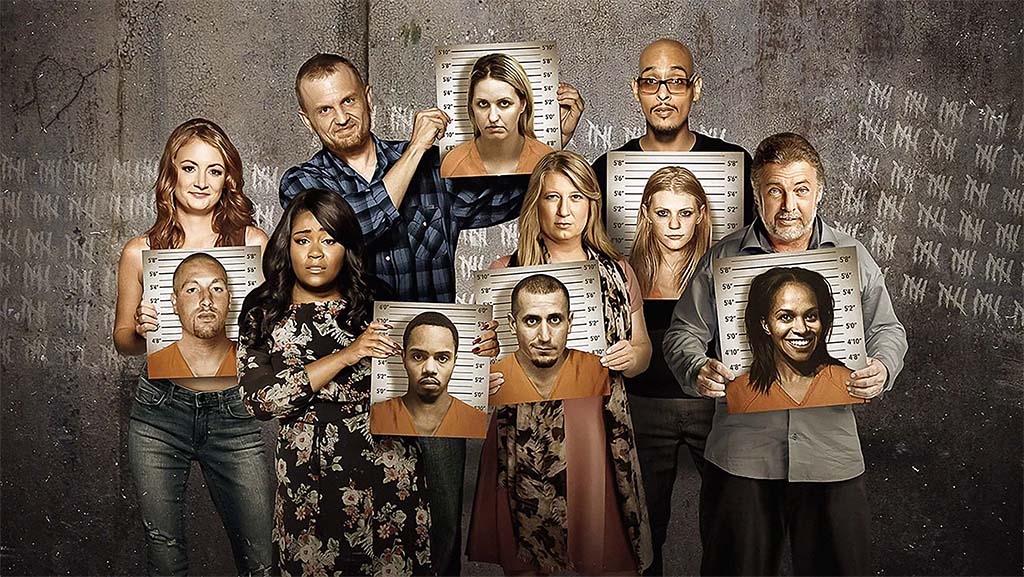
B+C: How have the current owners, Sony Pictures Television, enhanced the Sharp Entertainment brand?
MS: Sony is obviously an incredible brand and incredible company. It allows us to tap into their infrastructure to multiply and magnify what we’re doing. It’s also great that we have partners that trust us — we’re in New York City, we’re successful and they’re not messing with that formula. They’re there to make that call when we’ve got a great idea that we’re thinking about as the perfect Sony project that they could help blow up.
B+C: You mentioned that there were times when you weren’t sure what the company’s next show would be, but that couldn’t have happened much over the last 10 years because you’ve had a successful hit with 90 Day Fiancé and its multiple spinoffs. Why did you think the show’s concept would work on television?
MS: There was a newsmagazine show in 2011 that was talking about Americans who were going abroad to meet a foreigner for love, and it was following a group of guys going over to Odessa, Ukraine, to meet women. I was fascinated by the magazine piece. We thought we had a great concept and we quickly wrote up a pitch and we brought it around. We pitched it to all the networks and immediately got rejected everywhere, as you do. But I’m passionate, so we brought it back in and really thought about the concept. One part of the pitch we decided to play up more, because it wasn’t the main focus of the pitch, was this K-1 visa. It was the fiancé visa that allowed these guys or girls to go overseas, bring back a foreign love interest, then apply for a K-1 visa or the fiancé 90-day visa. So we brought it all around again, knowing that this was definitely going to sell, and once again everyone across the board said pass.
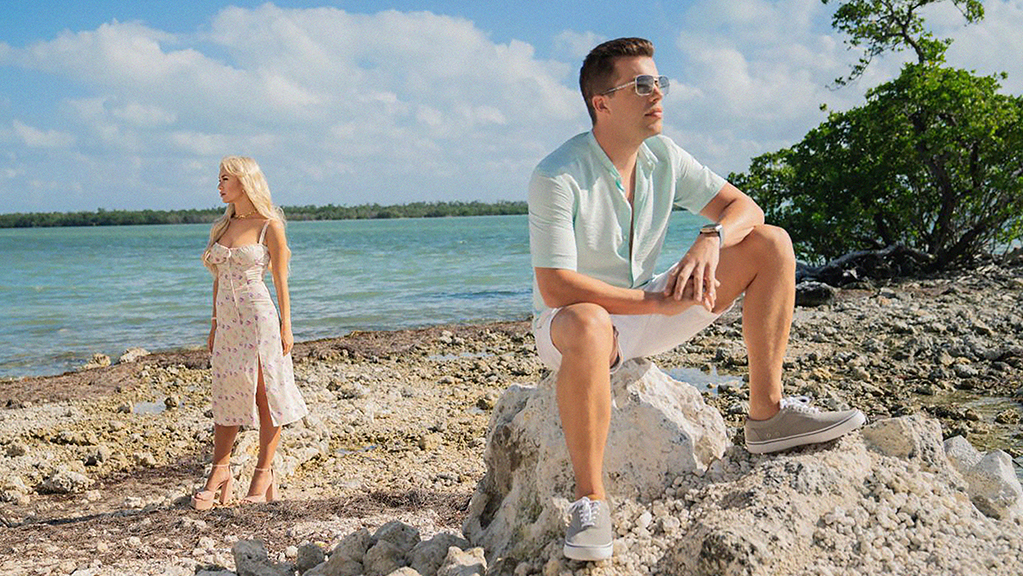
It is now a year and a half into everyone passing, so we were done with it. But I brought the pitch with me to the 2013 Realscreen conference, and I was sitting in the big ballroom there talking to longtime friend, colleague and partner Howard Lee at TLC. And I wasn’t planning on pitching this, but I ended up playing him a sizzle reel. Three minutes into the sizzle reel, Howard took off his headphones and said, ‘I want to buy that.’ We immediately did six episodes for TLC, and now we do 250 episodes a year [for the franchise].
B+C: Industry observers have pointed to the 90 Day Fiancé franchise’s diverse casts as an important part of its success. How important is diversity and inclusion to you in terms of your business philosophy and developing and creating content?
MS: Diversity in our programs is massively important and that’s across the board. If you look at it from a pure business perspective, I believe that people want to see diversity in their programming and they want to learn about other people.
I really think 90 Day Fiancé is the most culturally and ethnically diverse show on television. When that show first aired, I think the conventional wisdom for most networks was that people want to see other people just like them and any time you get someone speaking a different language or from a different culture, people turn off, unless you’re watching something like the Discovery Channel. And when it comes to love in particular, the assumption was that people wanted to see other people like them. I think we completely changed that thinking.
Our most diverse shows, like Before the 90 Days and 90 Day Fiancé: The Other Way, the entire show takes place in different cultures. When we did the original show, the episodes were taking place in America, which was really relatable, and then we had this foreigner coming in. Those other shows were a leap of faith for us — would the audience follow along if it’s totally led by someone who’s not from our culture, in their world and where the American was the fish out of water? But they proved to be some of our highest-rated shows, and I’m proud of that. We believe in a hidden broccoli formula for our shows, which is that we want people to be educated through watching our shows. I think it’s great that people who never really thought of the other countries are now all of a sudden connecting to people outside of America.
B+C: Another ethnically diverse show you produce is Love After Lockup for WE tv. With that show, the network pitched you to produce. Why did you feel that show fit the Sharp Entertainment brand?
MS: Yes, our friends at WE tv approached us, so I can’t take credit for the original idea. It was a little different when we started doing that, but we came in and we felt like there was an opportunity, like 90 Day Fiancé, to do a show that we felt was extraordinary. We always talk about combining the relatable with the extraordinary in television, meaning you bring an audience in because it’s relatable but they stay because it’s extraordinary.
So for example, in Love After Lockup and 90 Day Fiancé, it’s relatable because people have been in a relationship and fallen in love before — they understand the baseline. Then the extraordinary thing is, can you imagine if you couldn’t actually speak the same language as your fiancé and you had to rely on a Google Translator app? It’s the same thing with Love After Lockup — people at home were saying, ‘I’ve been in a relationship, but I’ve never been in a relationship with someone who just got out of prison.’
We also felt like there was an opportunity in that show to highlight the criminal justice system. I think that there’s been a scarlet letter on people in prison, but we realized when we started researching that show and talking to people that so many people have a connection to someone who’s been in prison. It’s not a group of people that should be shunned for the rest of their lives. They deserve a second chance and a life too, so we wanted to tell those stories and we’re really proud of what we’ve done on that show.
B+C: Along with love-themed shows, Sharp Entertainment has had several hits focusing on subcultures, like Nat Geo’s Doomsday Preppers and TLC’s Extreme Couponing. Why were they so successful during their runs?
MS: Doomsday Preppers was indeed a subculture show. I think it was a time and place that gave viewers access to a world that they didn’t really know existed or existed on the periphery. But I’ll say, I think one of the main drivers of that show was that people watched it in multiple ways — it’s not just black and white. When we developed Doomsday Preppers, we naively felt like we’re going to develop this show and people are going to watch this as a fascination of a world they’ve never seen before. What we realized when the research came back about that show is that half the audience was watching it that way, and half the audience was watching with a notepad and taking notes because they were kind of preppers themselves. So I think that’s one of the reasons why that show went on to be one of Nat Geo’s top shows of all time.
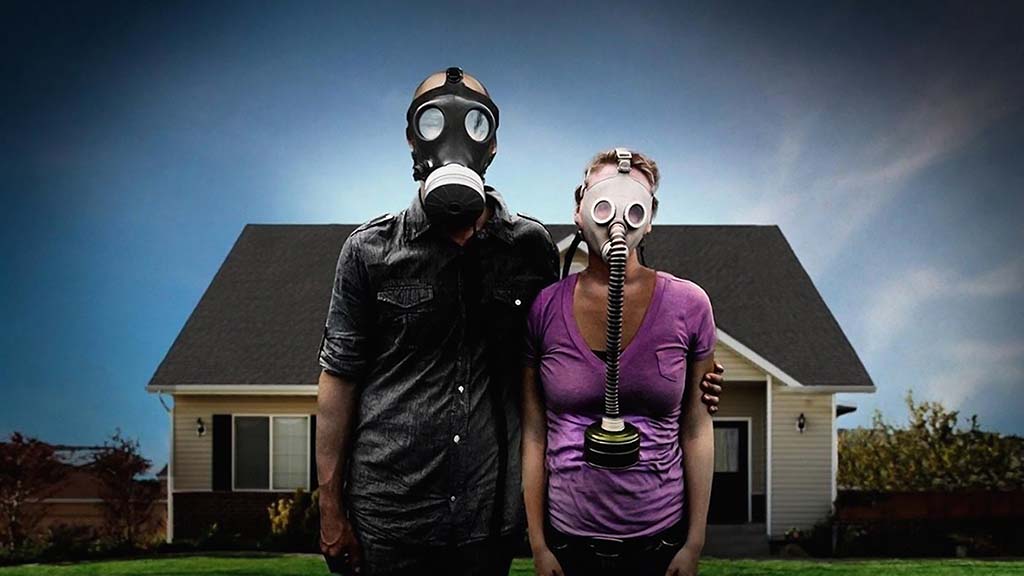
Extreme Couponing had that element where you couldn’t believe there were people out there who were so crazy about coupons. We first developed a special which brought people into a subculture, but it also had a game-show element. If you remember, the segments ended with the people falling into a cash register to figure out how much money they could actually save. After the first episode aired, the phrase “how to extreme coupon” was one of the top search terms. People were riveted, because the idea you might be able to make money or save thousands of dollars with the paper that’s just sitting there was compelling. It was also a female-skewing version of male-skewing transactional shows at that time, like Pawn Stars or American Pickers.
B+C: Is there a show currently on air that you would have loved to have developed for yourself?
MS: Without a doubt. My kids always say, ‘Dad, don’t you wish you did [Netflix’s] Love Is Blind?’ I’m like, ‘Yes, dammit.’ [Laughs.]
B+C: You mentioned earlier that 2023 was one of your best years. However, the television industry as a whole struggled as it continued to evolve. How do you see the future of the television industry shaping up, and why do you remain bullish about reality TV?
MS: I think right now, over the last five years, we’ve gone through real disruption in television with AVOD [ad-supported video-on-demand] and [subscription] SVOD. I think there are tons of eyeballs, but millions and millions of those eyeballs are being diverted. My kids are watching everything on their phones and I’m thinking, what does that mean for me? There’s incredible disruption, but I will say that I am very bullish about content — it’s not going anywhere. I think the question for guys like me is what is going to be the new model, because we obviously have seen everyone in linear television move towards streaming, and then all of a sudden the streaming business has gotten hard.
So I think it’s about figuring out the model coming up. But at the end of the day, I think that the audience wants high-quality [content] and they’ll pay for that high quality. I’m not blind to the fact that the entry barriers for making nonfiction content are low. When I started in this business, the camera that we used, I think, was $200,000 and we had an edit machine. That was the only way you could make a series. Now, every single person walking in the street has a better camera and a better editing system on their phone than we had. So while the barriers to create content are down, I do think people are going to want quality storytelling and quality content. We as creatives are going to have to keep finding those fresh new worlds and give the audience access to those.
When I started in this business, the camera that we used, I think, was $200,000 and we had an edit machine. That was the only way you could make a series. Now, every single person walking in the street has a better camera and a better editing system on their phone than we had."
— Matt Sharp, Sharp Entertainment
B+C: There are more platforms for distributing content than ever before. Given the industry’s dynamics, is it more difficult to get your content in front of millions of viewers now than it was when you started 20 years ago?
MS: I think it’s different because buyers are different. A cable buyer is different than a streaming buyer. They’re different businesses. When your business depends on wrapping ads around fresh content, that’s one thing. Then, when you’re a subscription-based business, that’s entirely something else. So as a content creator, when I’m selling shows that’s certainly part of the consideration. I have some shows that I think are long platform shows — we want lots of hours to tell these stories because we believe we can sustain an audience. For a streamer, I think they’re less interested in that and more interested in, we have a show and we have eight episodes.
Marketing a show on a streamer is hard because it can get lost. There are only so many shows they can push a month, so it’s hard to find an audience. Right now, 90% of our business is still in linear, so I’m still a big fan of linear and I still think [the platform] has the ability without marketing to find an audience — we’ve had very few shows that have ever gotten marketing. My belief is it’s sticky, and if the shows are in the right place and in front of the right viewers you can get an audience.
B+C: What does 2024 look like for Sharp Entertainment in terms of distribution of content?
MS: We’re continuing to grow. I think we have a lot of exciting projects coming out this year. We’re continuing to grow and sustain our existing franchises, and we look at how we can keep that as fresh as we possibly can by looking at other areas where we can take that show, and how we can continue to surprise the audience with the stories we’re telling.
We’ve got another great franchise on MTV now that’s going to a third season called Help! I’m in a Secret Relationship, which is doing great and we’re looking to grow that in terms of franchising. Our belief is that if I’m a network and I’ve got a successful show that already has an audience, and I can create another show that’s 10 degrees to the left or right of that original show, it’s got a much greater chance of success than taking something that’s totally fresh and original and putting it on in the hopes of getting an audience. So I think that’s the belief behind franchising, and we continue doing that and taking a show that’s successful and figuring out how to break this in a different way.
We were fortunate to have had lots of hits throughout the years, but it’s really fun when you develop something that people haven’t seen before. We’ve got a couple of projects we’re really excited about that we’re working on now but that’s always the goal, to come up with the next big hit.







